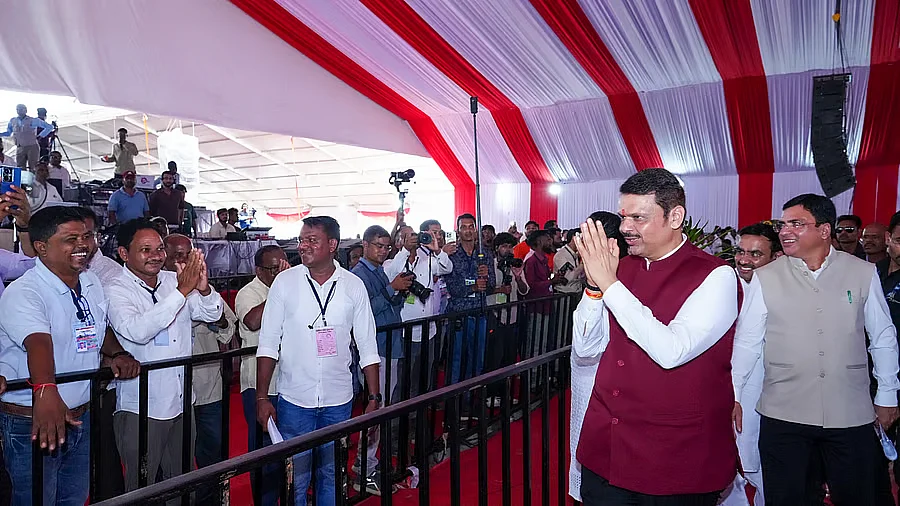Jayant Walia’s leadership produced a first of its kind embedded retirement and insurance solution that paves the way for intelligent financial services across the world
As financial services—from loans and savings to insurance and payments—move directly into the platforms people already use, movements once reserved for banks are now invisible. The global embedded finance market reached around 112.6 billion dollars in 2024 and is projected to nearly double to 237.4 billion by 2029, growing at about 16 percent a year (source Bain Capital+7MarketsandMarkets+7FinTech Futures+7). India, in particular, is fast becoming a hotbed for this trend, with revenues expected to jump from roughly 5.8 billion dollars in 2024 to nearly 28.6 billion by 2029 (source Globenewswire)
At the forefront of this movement is Jayant Walia, a senior global leader reimagining how annuities are delivered in the digital age. Widely regarded as a retirement solution long bogged down by complexity, annuities have now been transformed into smooth, embedded financial tools that people can access with the same ease as opening a digital wallet.
Drawing on his experience driving mobile-money adoption in Africa and innovating payment infrastructure in the United States, Walia led a breakthrough initiative at Gainbridge. Under his leadership, the company built a cloud native platform powered by APIs, making it possible for fintech apps and advisory platforms to embed fully underwritten annuities seamlessly in their user flows. These annuities come with terms ranging from three to ten years and yields of around five point eight percent per annum. What once took weeks can now be completed in minutes. As Walia puts it, “What once required weeks now happens in moments. For the first time insurance feels like banking.”
Behind the scenes, licensed carriers handle underwriting and compliance. Meanwhile, partner platforms own the user experience through clean integrations. This modular approach is built for scale and designed to be adapted for other regulated products, including credit, health insurance, and pensions.
The timing could not be more critical for India. Insurance penetration in the country declined to just 3.7 percent of GDP in fiscal year 2023‑24, lagging behind the global average of around seven percent (source TOI insurance penetration source). Despite near-universal mobile penetration and widespread use of digital payments, many Indians still lack access to basic protection and retirement planning. Walia believes that embedding annuities into platforms people already rely on—such as payroll systems, gig economy wallets, and e‑commerce checkouts—can deliver resilience without forcing users to rely on traditional tools or providers. “India does not need more banks,” he said. “It needs essential financial tools embedded into the apps people already use.”
The Gainbridge platform is not limited to retirement products. Behind its API-first architecture lies the capability to support micro pensions, targeted credit lines, parametric insurance, and more. This structure separates the regulatory responsibilities from the user workflow. Licensed partners provide the downside coverage, and platforms focus on delivering an engaging and intuitive experience. That dichotomy is proving effective in emerging economies across Africa, Latin America, and Southeast Asia, where digital access outpaces traditional financial inclusion.
Looking forward, Walia is charting a future where finance becomes both embedded and intelligent. He describes his vision of "agentic infrastructure"—financial services that respond automatically based on behavior and context, without needing manual initiation. He cites initiatives like the Model Context Protocol from Stripe and others as the groundwork for autonomous financial actions. Picture a world where a payroll app automatically tops up your annuity after your salary arrives, a health app initiates coverage post a telehealth appointment, or a digital wallet adjusts your credit limit based on spending habits—all without human intervention. “We are building systems that think and act for users,” Walia says, marking a transition from static embedded services to dynamic, autonomous financial ecosystems.
About Jayant Walia
Jayant Walia holds an MBA from Harvard Business School. He is a Chartered Accountant and member of the Forbes Business Development Council. He began his career championing mobile-money adoption in Africa, where Airtel Money expanded services across 15 countries in Africa where Jayant managed a global team and structured bank partnership deals across countries to lay the foundation of the platform that now manages transactions in multiple billion dollars. He then joined Marqeta, a leading global fintech firm before its IPO, helping scale its business of programmable payments infrastructure including real time funding, virtual cards, and embedded banking APIs that now process transactions across North America and Europe. He was a critical leader in the embedded banking space enabling companies to leverage Marqeta’s APIs to build broader banking products.At Gainbridge, he led the development of the API-first annuity platform that is setting a new standard for retirement products in fintech. He now collaborates with Indian fintech founders and investors to integrate regulated financial solutions—ranging from savings and credit to insurance—into the growing app economy in India.
Jayant Walia’s work is changing the architecture of financial services. By embedding essential retirement and protection products into daily digital experiences and laying the groundwork for intelligent financial systems, he is enabling millions to build smarter and more secure financial lives. In a country like India, where digital usage is soaring but financial inclusion still has miles to go, his platform offers a clear path to delivering protection and resilience at scale.










